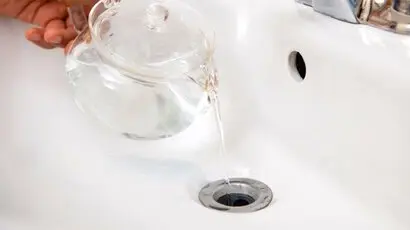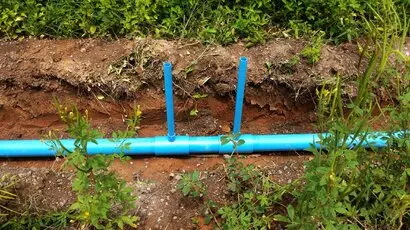Many homeowners and businesses must deal with aging, deteriorating pipes. Over time, issues like corrosion, cracks, root intrusion, and more can develop in old piping, causing leaks, clogs, water damage, or even sewer backups. Traditionally, the only trenchless pipe repair method was full traditional pipe replacement—a messy, disruptive, and costly endeavour.
Nowadays, trenchless pipe relining offers a better solution. This innovative process involves coating old existing pipes with epoxy resin to create a smooth, watertight barrier. Pipe relining eliminates all the digging while restoring your pipes from the inside out with minimal demolition required. It can extend the life of your pipes for decades while avoiding excavation.
Many have the key question: What pipe lining materials can be relined? Not all pipes are suitable candidates for this trenchless method. This article provides a full compatibility guide detailing which pipe types can be successfully relined and which cannot. We’ll overview the most common materials in residential and commercial plumbing systems and whether they are ideal for pipe relining. Read on to discover if pipe relining is the right solution for your damaged pipe!
What Pipe Materials Compatible With Pipe Relining
When it comes to pipe relining, not all materials are created equal. Only certain pipe types can be effectively restored with epoxy resin. Below, we detail the most common pipe materials compatible with the pipe relining process.
Cast iron pipes
Cast iron pipes were originally extensively installed underground for sewers and drainage lines. But over decades, they have become vulnerable to corrosion and build-up that causes cracking. Pipe relining applies a protective epoxy barrier that seals cracks and fully adheres to the cast iron walls, preventing further deterioration.
Galvanised Steel Pipes
Galvanised steel pipes were quite the go-to in older plumbing setups. However, as time marches on, they’re prone to rusting and corroding from the inside. With pipe relining, we can smooth those inner walls with a durable epoxy layer, effectively eliminating any flow restrictions and restoring capacity.
Copper Pipes
Copper pipes, though quite durable, can end up hardening and suffering from pinhole leaks and erosion over time. The relining process includes clearing debris and applying a thin epoxy coat. This seals any cracks or pits, bringing back normal water flow as the epoxy bonds snugly to copper surfaces.
![]()
Concrete Pipes
Concrete pipes can fall prey to cracks thanks to shifting earth, intrusive tree roots, groundwater damage, and just plain aging. The relining process adds a seamless epoxy barrier that bonds perfectly to concrete, mending those cracks or gaps. This helps keep roots and water from sneaking into damaged sewer pipes.
Incompatible Materials
While pipe relining works well for certain materials, it is incompatible with some pipe types. Plastic and lead pipes present some limitations for the application and effectiveness of epoxy resin.
PVC Pipes
PVC, or polyvinyl chloride, is a rigid plastic widely used in plumbing and drainage. It’s pretty durable, but brittleness and cracking can still occur over time. Applying epoxy relining here isn’t typically advised because PVC’s slick surface doesn’t really allow for strong adhesion.
![]()
ABS plastic
ABS (acrylonitrile butadiene styrene) is another type of rigid plastic pipe. It is also prone to cracks and breaks as it ages. Like PVC, the smooth surface of ABS makes it a poor candidate for repairing damaged pipes. Proper epoxy adhesion would be challenging to achieve.
Lead Pipes
Lead pipes are a contamination risk and really should be swapped out. Although technically possible, lining them with epoxy isn’t advisable. Disturbing these pipes could heighten lead exposure, and any epoxy barrier leaks might cause additional contamination concerns.
Assessing Your Pipes
Figuring out if your pipes are ready for relining kicks off with a good inspection. You might check visible parts, like in the basement, but it’s wise to have a professional plumbing contractor conduct a full assessment. They’ve got the expertise to properly gauge your pipes.
![]()
Professionals come equipped with the tools and expertise to assess pipe materials, conditions, and any existing damage. They’ll check out location, size, and accessibility too. An in-depth inspection often uses a sewer camera to visualise what’s going on inside, helping to decide if relining will work to boost the lifespan of your pipes.
Determine if Relining is Right for You
Once you’ve thoroughly inspected your broken pipes, you can make an informed decision about relining. Consider factors like the extent of damage, number of affected pipes, and locations that require repair.
Compare the cost of trenchless relining to complete replacement. Relining may be the more affordable option for less severe spot pipe repairs that restore functionality.
For extensive deterioration, replacement may be needed. Weigh the benefits of avoiding excavation and restoring flow capacity with epoxy barriers versus installing a brand-new pipe. Relining adds decades of life to an old, damaged pipe when selected appropriately.
![]()
Get the Full Compatibility Rundown
Pipe relining offers a minimally invasive, cost-effective solution for restoring old, damaged pipes without complete replacement. However, it is crucial to consider pipe material compatibility when determining if relining is suitable for your plumbing system.
Cast iron, galvanised steel, copper, and concrete pipes are often good candidates for epoxy barriers as long as deterioration is not too severe. On the other hand, materials like PVC, ABS, and lead pipes present limitations for proper relining.
The experts at WP Plumbing can assess the specifics of your old pipes and provide honest guidance on relining versus replacement. Contact us today to schedule a thorough inspection.
We have years of experience determining when pipe relining services are the best option and when new pipes are needed. Trust WP Plumbing to analyse your system and explain the most cost-effective, long-lasting pipe relining solutions. Investing in professional pipe relining or replacement from our team guarantees your plumbing system will function smoothly for years.







